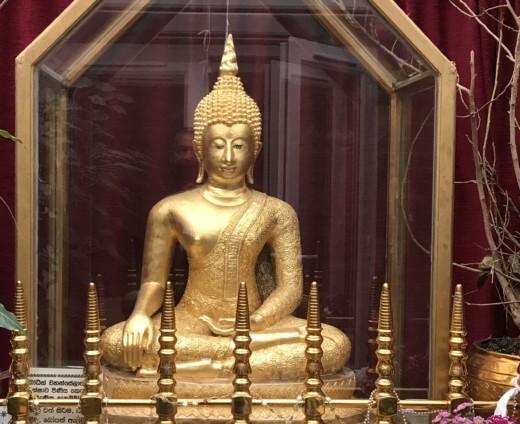
- This event has passed.
Navam Full Moon (Pōya) Day
February 25, 2024
Free
As usual Buddhist devotees observe the eight precepts.
Navam Full Moon Poya Day holds special significance for Buddhists around the world, as it commemorates several pivotal events in the life of the Buddha. Falling on the full moon day in the month of Navam, typically in February, this auspicious occasion is marked by a universal celebration of Buddhist teachings and principles.
One of the central events associated with Navam Poya is the gathering of the Buddha’s disciples, known as the “Sangha,” to witness the Buddha proclaim the fundamental principles of the Dhamma, encapsulated in the Ovadapatimokkha. This discourse serves as a guide for monastic life, emphasizing ethical conduct, mindfulness, and the path to enlightenment.
Navam Poya also marks the spontaneous formation of the Mahasangha, a community of enlightened monks who gathered without prior appointment. This assembly is symbolic of the unity and harmony within the Buddhist community, fostering a sense of fraternity and shared purpose.
Devotees worldwide observe Navam Poya Day by engaging in various religious activities. Temples become centers of vibrant religious ceremonies, with devotees participating in meditation, prayer sessions, and acts of generosity. The emphasis on ethical conduct and spiritual development echoes throughout the day, encouraging Buddhists to reflect on the teachings of the Buddha and strive towards personal transformation.
As the full moon casts its radiant glow, it serves as a reminder of the enlightenment attained by the Buddha. The universal nature of Navam Poya encourages Buddhists of diverse cultures and backgrounds to come together in a shared celebration of wisdom, compassion, and the path to liberation. It is a day for introspection, communal harmony, and a reaffirmation of the timeless teachings that continue to inspire and guide followers on their spiritual journey.
